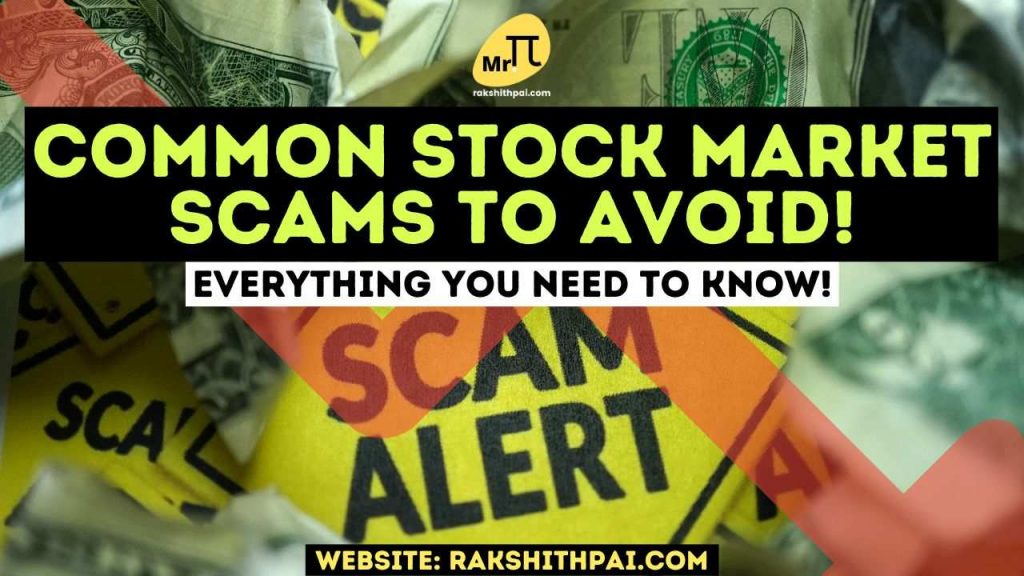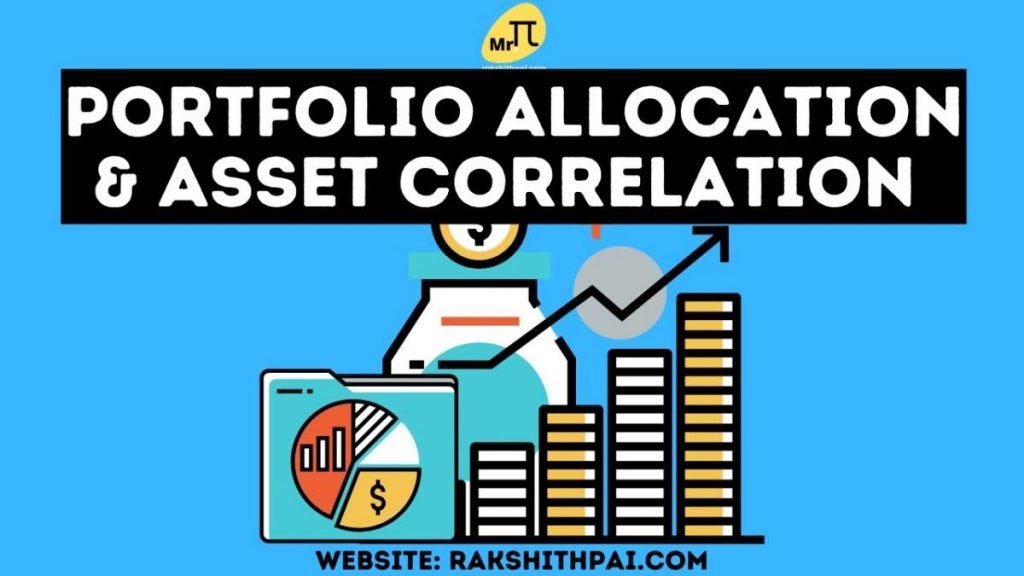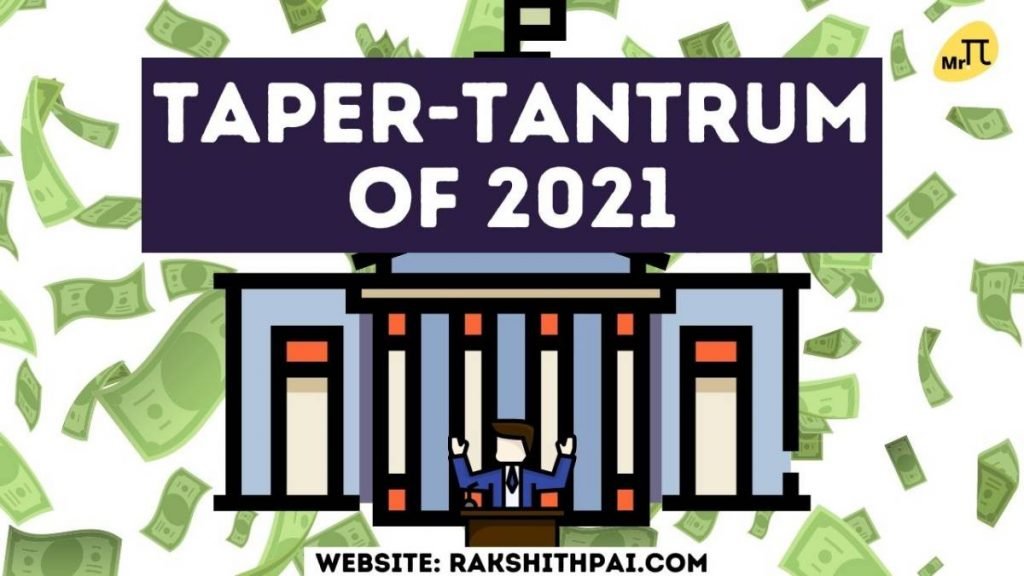Table of Contents
What are Stock Market Scams?
The stock market continues to be one of the most popular investment vehicles. In addition to generating wealth, it has also provided investors with satisfactory returns on their capital. But sometimes fraudsters tricked investors and misled the market, causing losses that could not be made up.
“Securities fraud,” which is also called “stock fraud” or “investment fraud,” is when people on the stock or commodity markets try to trick investors into trading quickly based on false information. This is against the law.
Securities fraud can also take the form of blatant theft from investors (embezzlement by stockbrokers), manipulation of the stock market, falsification of a public company’s financial reporting, or deception of the company’s auditors. This is a broad category that includes insider trading, front running, and other illegal actions on the trading floor of a stock or commodity exchange.
This article will provide a high-level overview of a few instances of fraud that were so significant that their discovery caused significant stock market fluctuations. This had a negative impact on the system as a whole, reducing its value and disrupting its usual operation as well as the finances of its investors.
Five (5) Most Common Stock Market Frauds to be Aware of!
Scams can be a direct and intentional act to deceive someone. In this article, we have also mentioned such instances that’ll impact an investor into taking irrational decisions. Such as;
Stock Tips & Suggestions
They get hold of your phone number and email id via third-party service providers. Unfortunately, some of your brokers & financial institutions where you conduct your business, sell your information.
Once, they get hold of you, they give high hopes of a 30% to 40% annual return on investments. Be wary of such unscrupulous stock market operators who guarantee annual profits of more than 30% – 40%. Remember, not even Warren Buffet could earn more than 20% per year!
The phrase “Guaranteed Tips and Results” is used in a prevalent and widespread scam in the Indian stock market. Here, con artists advertise their services to potential victims by promising high returns or passive income and such.
Whatever the case may be, these con artists are guaranteeing outrageous profits every month to anyone who follows their advice and pays them for it. Furthermore, they promise that their advice and suggestions will be accurate in more than 90% of the cases.
For all these soo called benefits, These con artists will require you to pay a registration fee before they will provide you with any investing advice. Don’t believe their grand claims.
Unfortunately, many of the people who attempt these freebies end up falling prey to the scammers who set them up.
It turns out that all of their trial period recommendations were spot on. Traders and investors are duped into subscribing to the fraudsters’ monthly or yearly suggestion plans after seeing the outcomes of the trial period. Subscribing to these programs comes at a hefty price. But after signing up, much of their advice is useless.
Pump & Dump Scheme
The goal of the pump-and-dump scheme is to artificially inflate the price of a stock or investment through the dissemination of false information. All of these suggestions are founded on either outright lies or gross exaggerations. Culprits of a pump-and-dump scheme typically have a stake in the company’s stock before engaging in the scam and will sell their shares once the price has risen.
According to securities law, this behavior is prohibited and may result in monetary sanctions. The growth of pump-and-dump scams in the equity and cryptocurrency markets is a direct outcome of the sector’s surging popularity and false notion of easy money!
Pump & Dump mainly occurs in penny stocks or small-cap companies, the name of which is hardly known. Penny stock (or micro-cap stock) pump and dump schemes involve the intentional dissemination of false information to investors and traders in an effort to artificially boost the price of a stock of a small company. When the price of a penny stock rises, they dump it to make a profit, and they do this by spreading false information.
Halo Effect!
A halo effect is a form of cognitive bias that occurs when we grossly overstate a single characteristic of a person, product, or corporation in order to form an overall opinion about them.
The halo effect is not exclusive to any particular industry. For example, in business, one successful product can increase demand for the company’s other offerings.
It is safe to assume that the halo effect is akin to brand loyalty and brand strength and that it frequently helps build brand equity as a result of such circumstances. Con artists can be very convincing when they try to trick you into giving them money.
In order to get you to trust them, they will use flashy presentations, big claims, and a lot of confidence. Be wary of the presentation that promises exaggerated returns in a short span of time.
Social media Membership
Do not ever believe anything posted on Social Media. Or at least have a sense of due diligence when it comes to Health & Wealth aspects. Especially in terms of people sharing their intraday or other trading & investing screenshots! Do you know that they can be edited?
Yes! All those screenshots show hefty profits. They all can be edited & posted so that you are lured into joining their Telegram channel and other social media platform. A membership scam is very well known for its monthly/yearly subscriptions.

Unfortunately, even the well know investors or traders in our investment community, who until now had a very good presence on various platforms are starting their own program.
Ask their old subscribers about their program and you’ll realize how bogus the entire scheme is!
Messaging & Phone calls!
Common methods used by con artists to defraud retail investors involve taking advantage of the investor’s faith in their brokerage. In the guise of their stockbrokers, they advise clients to purchase specific stocks by SMS, phone calls, or even email. Due to the investors’ misunderstanding, they may buy the recommended stocks thinking the message came from their brokers.
Since they have faith in their brokers’ judgment, these buyers of stock perform very little to no additional investigation after obtaining a suggestion or tip. Instead, they put their faith in the advice of their brokers or advisers and invest in the stock market.
It’s possible that a large number of the broker’s clients will receive the same bogus messages. There is a chance that investors will act on the information because they think it is correct and reliable, but they will lose money as a result.
Conclusion:
Five (5) of the most widespread scams in the Indian stock market, which prey on unsuspecting retail investors, were examined in today’s article. The Indian stock market has a long way to go in the fight against these scammers, despite SEBI’s efforts to protect the interests of ordinary investors.
However, before we wrap up, we feel it’s important to point out that not all advisory firms are out to fleece their clients; some do offer helpful advice. But it is strongly suggested that you stay away from any and all free stock tips and suggestions. After all, nobody gives a damn about your cash quite like you do.
It’s not difficult to exercise caution when buying and selling stocks. Use a trustworthy broker, avoid “get rich quick” gimmicks, and take charge of your financial future.
If you come across any of these red flags, and if you can tell whether the investment opportunity is legitimate or not, trust your gut feelings and avoid it at any cost!
FAQ’s:
Disclaimer: All the information on this website is published in good faith and for general information purposes only.









